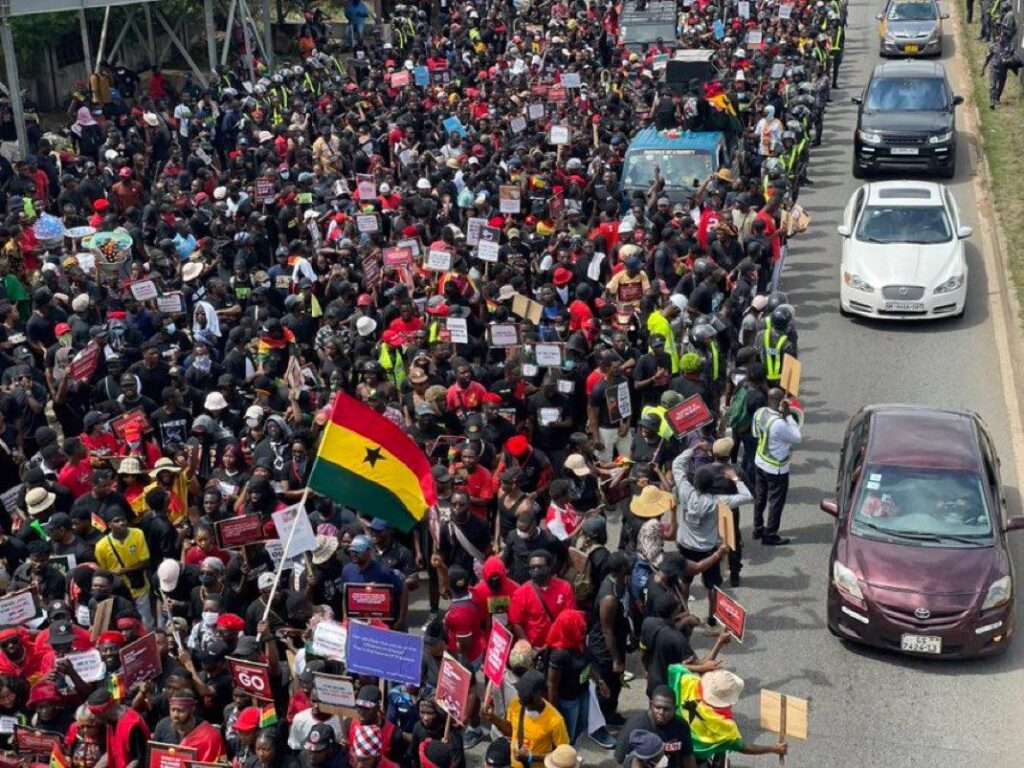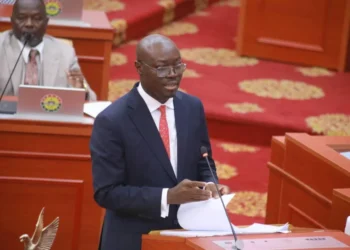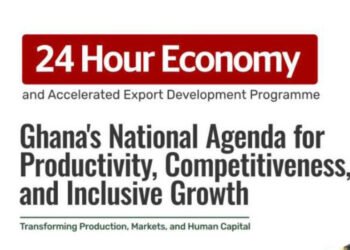In a thought-provoking interview with the Vaultz News, Dr. Abdul Hakim Ahmed, a political science lecturer at the University of Education, Winneba, provided critical reflections on the shifting perceptions of democracy in Ghana, as revealed by Afrobarometer survey data.
Drawing from Afrobarometer survey data, he attributed the dwindling number of “satisfied democrats” in the country to a range of factors, primarily centred around Ghana’s economic struggles and the ripple effects on public trust in democratic governance
According to Dr. Ahmed, democracy in many parts of the world has historically been tied to economic prosperity, asserting that the attraction to democracy, especially in countries like Ghana, has been partly driven by its association with improved living standards in advanced economies.
However, he noted that the economic stagnation and hardship faced by many Ghanaians since the country’s transition to democracy in 1992 have led to a decline in faith in democratic governance.
“So you can understand that economic challenges which cascade in all sectors now creating challenges with infrastructure, creating challenges with economic infrastructure, social infrastructure, and then dovetail into environmental problems, which you have in, in the form of galamsey that we are facing today.
“All these are economic byproducts of economic challenges leading to the phenomenon of a dissatisfied democrat”.
Dr Abdul Hakim Ahmed, a Political Science lecturer at the University of Education, Winneba
He emphasized that the ripple effects of economic challenges are evident across all sectors, further exacerbating the decline in satisfaction with democracy.
Economic Crisis Deepens Democratic Disillusionment
Dr. Ahmed was clear in affirming that Ghana’s recurrent economic crises directly impact public trust in democracy.
“You cannot delink people’s economic experiences from the declining faith in democracy,” he said, arguing that repeated economic failures naturally lead citizens to question whether the system is functioning in their best interests.
Corruption, also stands out as a major factor, with Dr Ahmed asserting that it siphons off resources that could otherwise be invested in critical social and economic services, compounding the fragility of the economy.
“Corruption has an effect on the economy, and also the economic mismanagement. Already you have a fragile economy; the economy has not been functioning, it’s fragile. It’s not functioning. On top of it, you have corruption.
“So what I can say is, you have what lawyers will call it double jeopardy; you have a fragile economic structure, then you have excessive corruption on it, and then you also have mismanagement which makes it more dysfunctional and then it continues to buffet the general population. And there is also the greed and the impunity by which public officials carry out this corrupt activity all add up to the results that you are seeing in the people giving their verdict on democracy”.
Dr Abdul Hakim Ahmed, a Political Science lecturer at the University of Education, Winneba
Galamsey: The Illegal Economic Engine
One of the more troubling dynamics Dr. Ahmed highlighted was the role of illegal mining (galamsey) in deepening economic woes and eroding public trust in governance.
He pointed to the interlinking of illegal mining with political party financing and the livelihoods of many local communities. This multifaceted problem, he argued, makes the fight against galamsey almost unwinnable, with devastating consequences for the environment and the future of the country.
“The fight against galamsey is like the fight against corruption—it’s a battle already lost. Apart from the greed driving it, galamsey has become a major avenue for financing political parties and campaigns. Politicians are motivated to protect it for electoral support, while the local economy around these activities thrives”.
Dr Abdul Hakim Ahmed, a Political Science lecturer at the University of Education, Winneba
Dr Ahmed noted that Galamsey’s wide-reaching impact on employment and local economies complicates efforts to eradicate it, with thousands of people reliant on the illegal trade for their livelihoods.

The Middle-Class Revolt
Another key demographic increasingly disillusioned by the government’s inability to address galamsey and broader governance failures is the middle class.
Dr. Ahmed emphasized that the growing anger among Ghana’s working middle class over environmental degradation and political mismanagement is one of the driving forces behind declining faith in democracy.
“The middle class is extremely angry—especially over the destruction of the environment and water bodies. They see these as existential threats to the future of the country,” he explained, adding that this mounting frustration contributes significantly to the negative perceptions of democracy observed in Afrobarometer data.
International Perceptions and Domestic Realities
When asked about how international perceptions of Ghana’s democracy compare with domestic views, Dr Ahmed expressed scepticism that the current decline in trust would significantly affect foreign investment.
He argued that while the West remains committed to promoting democratic governance in Ghana, these international actors are more likely to focus on political stability rather than the nuances of public dissatisfaction.
“Our democracy will always be promoted by the West because it’s their system, and they will continue to encourage it regardless of the internal challenges we face. In terms of foreign investment, I don’t think the current decline in trust will have much impact”.
Dr Abdul Hakim Ahmed, a Political Science lecturer at the University of Education, Winneba
Restoring Trust in Democracy
Looking ahead, Dr. Ahmed offered suggestions for restoring faith in Ghana’s democracy. He emphasized the need for a renewed focus on meeting the basic social and economic entitlements of ordinary citizens.
“Any political system, whether democracy or otherwise, gets its legitimacy from providing for people’s basic needs—health, education, water, food, and electricity. If we focus on that, we can rebuild trust”.
Dr Abdul Hakim Ahmed, a Political Science lecturer at the University of Education, Winneba
Dr. Ahmed also called for political parties to reduce the monetization of elections and to curb corruption within their ranks.
He believes civil society organizations have a role to play in raising awareness and promoting education, while political parties must eliminate the corrupt practices that enable wealthy individuals to manipulate elections.
Governance Reforms Are Imperative
Finally, Dr. Ahmed stressed the urgent need for governance reforms in Ghana, particularly in the areas of political party financing, presidential powers, and electoral competition.
He argued that Ghana’s political system, characterized by deep-seated acrimony between rival parties, is hindering national development and undermining social cohesion.
“We cannot continue with a political system that divides the population after every election, leaving half the country feeling disenfranchised. We need reforms that reduce the acrimonious nature of our elections and ensure all Ghanaians are treated equally, regardless of their political affiliations”.
Dr Abdul Hakim Ahmed, a Political Science lecturer at the University of Education, Winneba
He also highlighted the strong connection between corruption in government procurement processes and political party funding, pointing out the pressing need to reform how elections are financed.
Dr. Ahmed’s reflections present a stark view of Ghana’s democratic landscape, highlighting the significant challenges posed by economic hardships, corruption, and political dysfunction.
In his wide-ranging analysis, Dr. Abdul Hakim Ahmed painted a sobering picture of the challenges facing Ghana’s democracy.
From economic hardships and corruption to illegal mining and political divisiveness, these issues have eroded public trust in democratic governance.
However, he remains hopeful that with comprehensive reforms and a renewed focus on delivering basic social and economic entitlements, Ghana’s democracy can be restored to its former strength.
READ ALSO: Adjetey Anang Challenges Sarkodie to Record Anti-Galamsey Song























